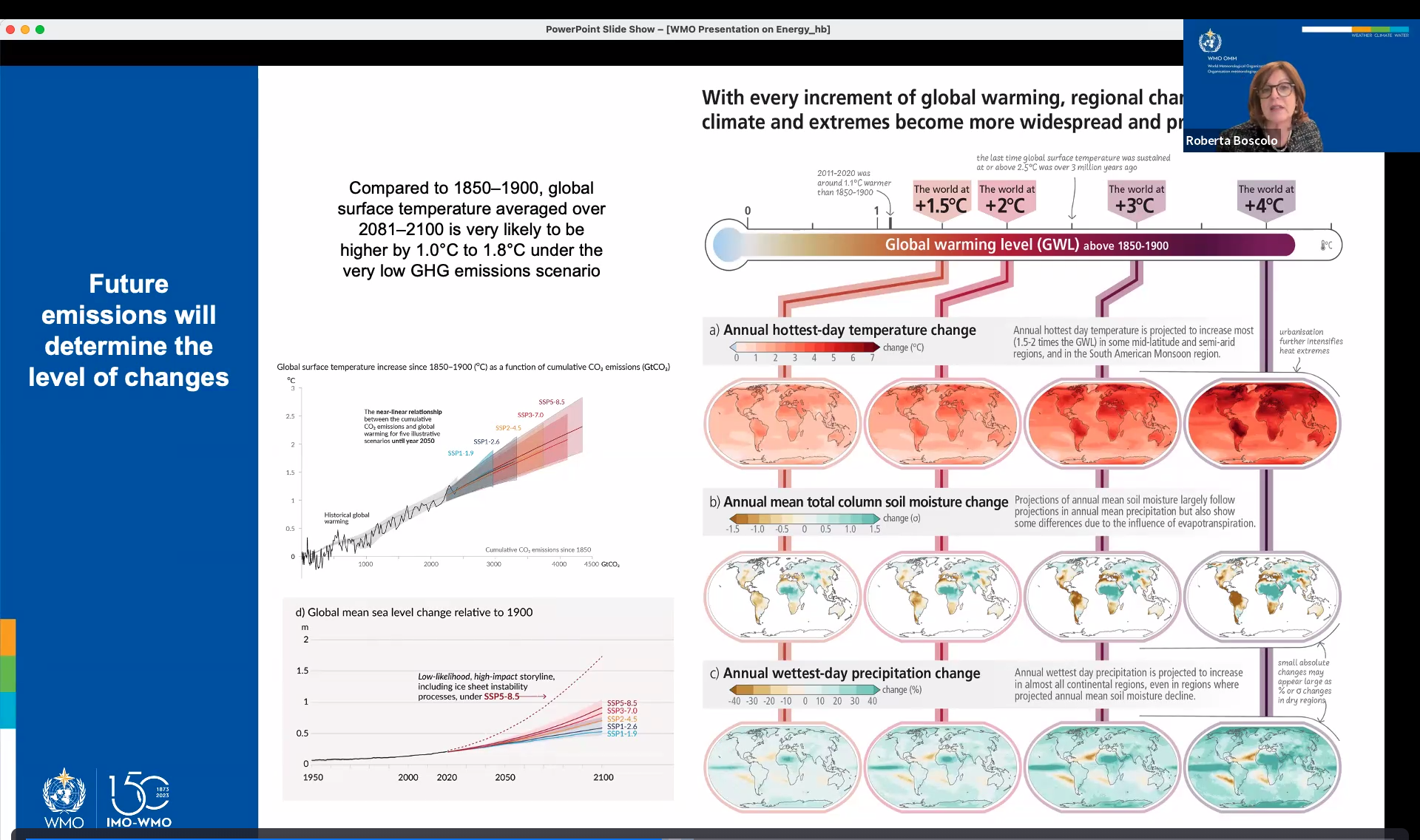Monday, January 22, 2024
As part of our ‘‘WEC Mondays-Guest Speaker Series’’ we hosted Dr. Roberta Boscolo, Climate and Energy leader at World Meteorological Organization (WMO).
In Dr. Boscolo’s presentation on ‘‘Climate change and its implications on the energy sector’’, Dr. Boscolo highlighted:

- The year 2023 was the hottest year on record. In 2023, global average temperature was above 1°C in all 365 days, only 2 days where the global average temperature was above 2 °C, global average temperature was above 1.5 °C almost 50% of days in 2023. In comparison, global average temperature went above 1.5 °C for only 20% of days in 2016.
- Global temperature change is caused by natural and man-made factors. However, the share of human activities seems to be the major cause of global warming. While, solar cycle and volcanic eruptions and other natural factors are cyclical and subject to natural variabilities, the greenhouse gas emissions have been rising at an alarmingly constant pace since the industrial revolution.
- While the impact of climate change is global, greenhouse gas emissions on the other hand are not evenly distributed. 10% of the population are responsible for more than 40% of global greenhouse gas emissions, the ones who suffer the most are the vulnerable segment of the population with far less carbon footprint.
- Ocean heat content and sea level rise both reached record highs in 2023. Since, ocean absorbs almost 90% of total excessive heat, the rate of sea level rise in the current decade is more than double from the first decade of the satellite record.
- Subsequently, we observed extreme melt season for glaciers in Western North America and European Alps. For instance, in the summer of 2022, we saw 6% mass loss in ice volume in Switzerland, as of today over 10% of ice volumes of the glaciers are lost in Switzerland in the last two years alone. Western North America also recorded the highest glacier mass loss in 2023.
- Water is at the frontline of climate change. Climate change is exacerbating both the water scarcity and water related hazards by disrupting precipitation patterns and the entire water cycle. Consequently, we are experiencing more extreme wildfires, droughts, and floods globally. 3.6 billion people are facing inadequate access to water at least one month a year, it is projected to increase to 5 billion by 2050.
- The frequency and intensity of global disasters are on the rise due to global warming. Climate change will continue to exacerbate the already existing socio-economic problems that we face today, such as poverty, inequalities, population displacement, food security.
- Future emissions will determine the level of changes. Compared to 1850-1900, global surface temperature averaged over 2081-2100 is very likely to be higher by 1.0 °C to 1.8 °C under the very low GHG emission scenario. As a result, we should expect more extreme climate events and be prepared for them.
- The energy sector is not immune to the impacts of climate change. Specifically, extreme weather puts energy infrastructures in grave hazards. Moreover, output from low-carbon energy sources such as hydro, thermal, and nuclear power will suffer the most from the impacts of climate change due to their dependence on water.
- The energy sector is going through a dramatic transformation. In 2022, renewable capacity grew by almost 10%, representing more than 80% of the total net capacity expansion. As a result, many countries are able to decouple their economic growth with greenhouse gas emissions. In COP28, a historic agreement was signed to triple renewable energy capacity and double energy efficiency by 2030.
- The atmosphere has no boundaries. The impacts of climate change are signaling for international cooperation in political, technological, and socio-economic landscape.
